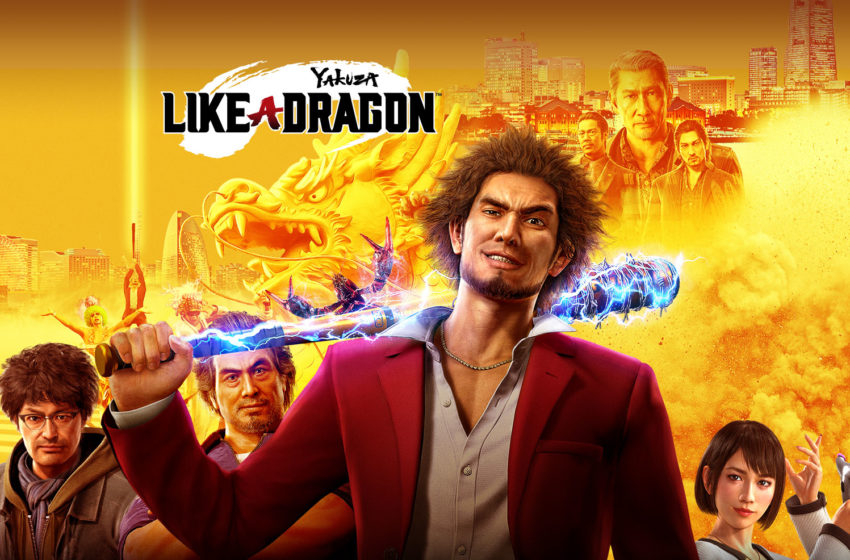
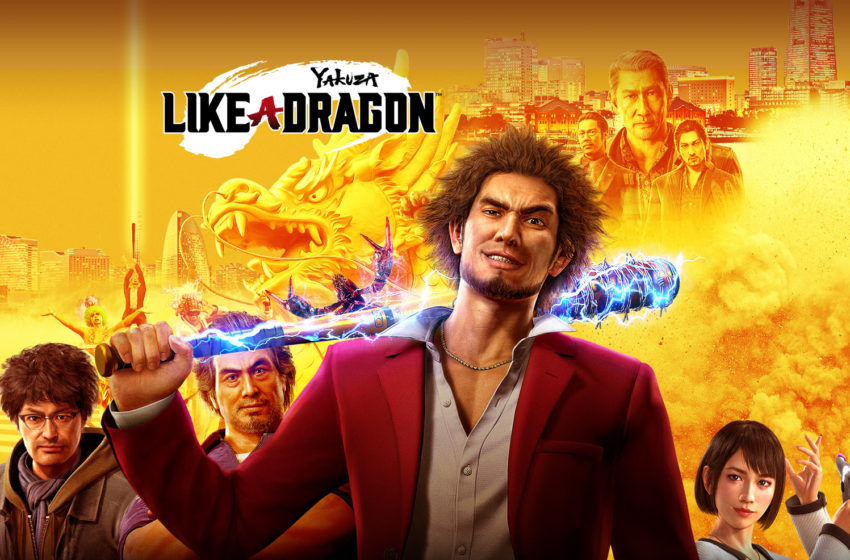
In 15 years, the Yakuza franchise has blossomed from a obscure cult series, into a major pillar in Sega’s portfolio. It helped that the series was both a gripping crime drama, and also a quirky life-sim that is packed with mini-games.
Every entry would further refine upon the concepts of the last, with the beat ’em up mechanics becoming more nuanced. Different playable characters would be introduced, and eventually the long running main character would take up different fighting styles.
Yakuza: Like A Dragon takes huge risks for the series which has been playing it very safe since the beginning. Kazuma Kiryu, the enduring protagonist of the franchise, has been retired. Further, the developers have completely abandoned the action gameplay in favor of a traditional JRPG turn-based system. Miraculously, this bold and new direction is exactly what Yakuza needed.
Yakuza: Like A Dragon
Developer: Ryu Ga Gotoku Studio
Publisher: Sega
Platforms: Windows PC, PlayStation 4, PlayStation 5, Xbox One, Xbox Series X|S (reviewed)
Release November 10, 2020 (Windows PC, PlayStation 4, Xbox One, Xbox Series X|S), March 2, 2021 (PlayStation 5)
Players: 1
Price: $59.99
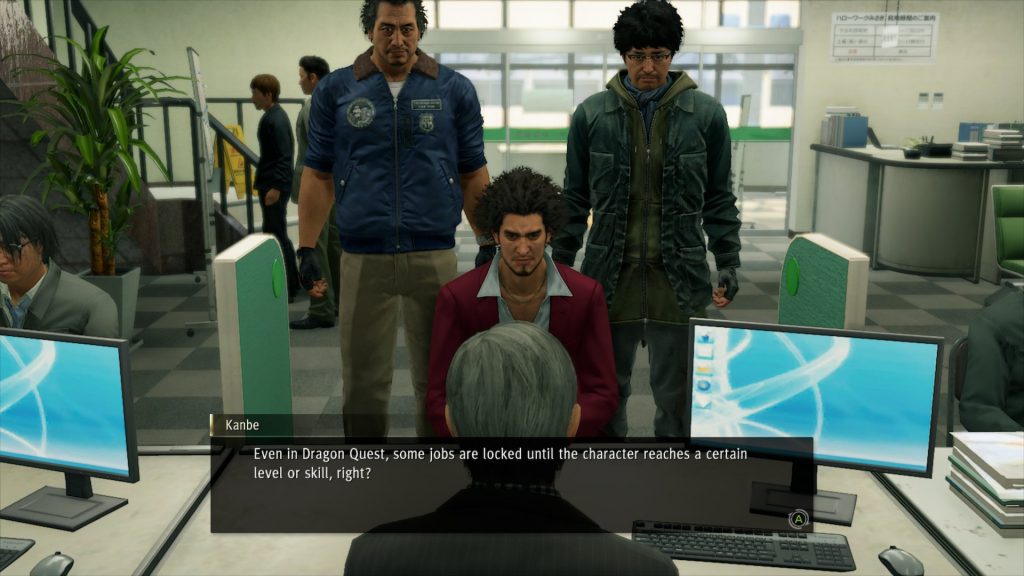
Yakuza: Like A Dragon lives by the “life is like an RPG” ethos. The modern day Japan setting for an RPG is nothing new, but it has never been done in such a grounded way like this. The Yakuza franchise has always prided itself on its attention to detail in compact, realistic district locations. Using this kind of backdrop makes Like A Dragon feel more immersive than any JRPG before it.
Sometimes there are shades of Earthbound hinted through out the setting, with ridiculous enemies like sex weirdos or fat guys using 3 liter soda bottles as clubs. Most of the time, Like A Dragon emulates Dragon Quest and is constantly making sly references to the venerable JRPG franchise though out.
It is impossible to fully explain Like A Dragon without bringing up Dragon Quest. Ryu Ga Gotoku Studios seemingly wrote the story of Like A Dragon around the fact that Dragon Quest has played a big part in Japanese pop culture. An entire generation was shaped by this cultural phenomena, and how they processed it is core to the new hero of Yakuza.
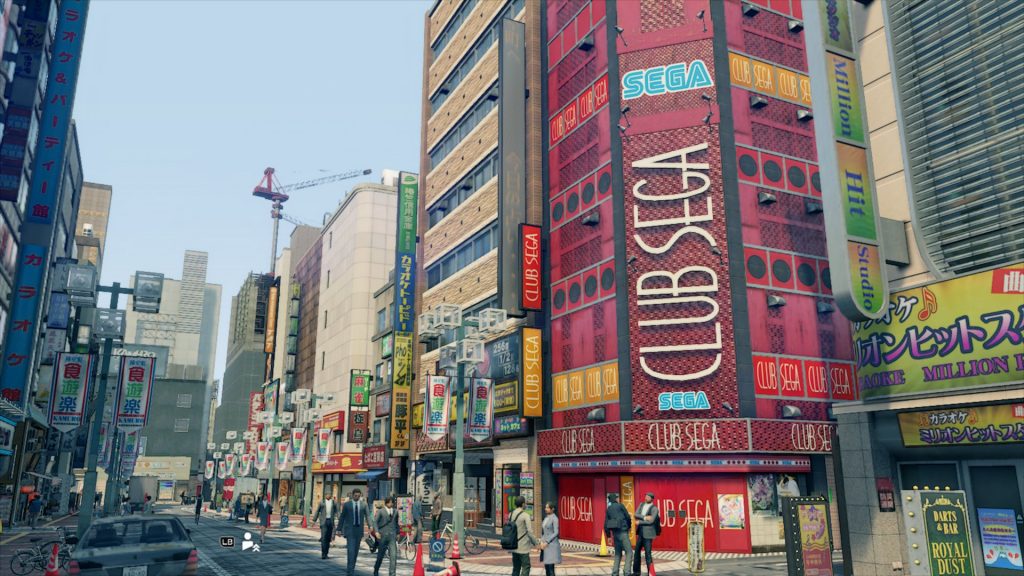
Ichiban Kasuga’s quest begins with him serving an 18 year prison sentence. When he is set loose, he has become a fish out of water and has to learn to live all over again. Everything has changed since he got let out, and he finds himself homeless.
His unwavering spirit is what keeps him alive. Finding work and living like a regular guy is not something that can come easy to an ex-yakuza, as trouble always seems to find him. Honor is something that means a lot to him and his old-school sensibilities. His passion for Dragon Quest games shaped him into wanting to be a good person, despite being a thug.
His journey will have him getting caught up in elaborate turf wars with Korean mobsters and Chinese triads. By the time the story comes to a close, you’ll feel like you’ve experienced Kasuga’s entire life. It is a powerful story told so eloquently, and pays off better if you have been playing the entire series.
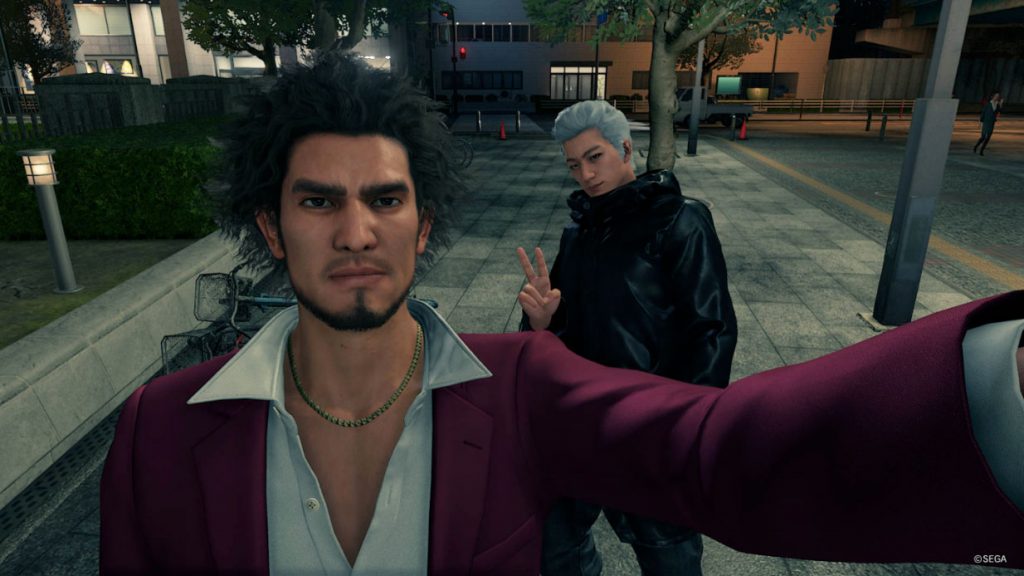
After seven mainline games, Kazuma Kiryu is being replaced with Ichiban Kasuga. This new protagonist is a breath of fresh air and the heavy JRPG influences are core not to just the broad gameplay, but to Kauga’s character. Like A Dragon brilliantly has a lore explanation for turn-based combat, and it has to do with Kasuga’s favorite RPG franchise; Dragon Quest.
Kasuga is a much more naïve and idealistic yakuza than Kiryu. He is also much more nerdy, but also seems more like the type of guy who would jump at the chance to help random strangers than the stoic and comically serious Kiryu.
The turn-based combat is how Kasuga visualizes his encounters from Dragon Quest obsession. Not only does he apply the logic of RPGs to his fighting style, but it is also how he sees life itself. “Life is like an RPG,” and his story of hitting rock bottom, to potentially becoming a multi-millionaire is flawlessly built upon the tropes of the Dragon Quest frame-work.
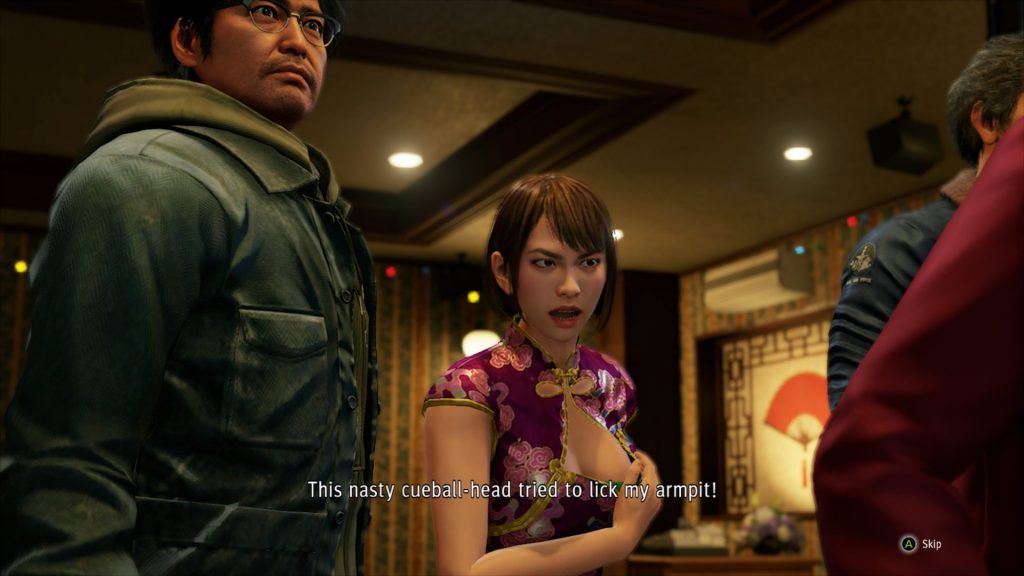
Like A Dragon‘s authenticity is felt with how defined every character is depicted. Side characters get the same attention, like the guy who runs the job center also being a fan of Dragon Quest. Kasuga and the gang are able to change their job classes, allowing endless possibilities for character building. The game is every bit as deep as the RPGs that inspired it and then some.
Job classes range from seemingly mundane chef, to outrageous break dancer and even sexy dominatrix class for the female party members. Every job changes the character’s utility in a big way. Some roles will allow some weapons that restore MP, and some classes will change the entire party dynamic like the defensive Enforcer who carries a huge shield.
There are some gender specific jobs which will make players consider who will be in the party. Like A Dragon only has two female party members, and one of them is an optional side-character. This situation makes their roles more desirable in some situations, since idols are the best healers and “night queens” excel at crippling thugs with status effects.
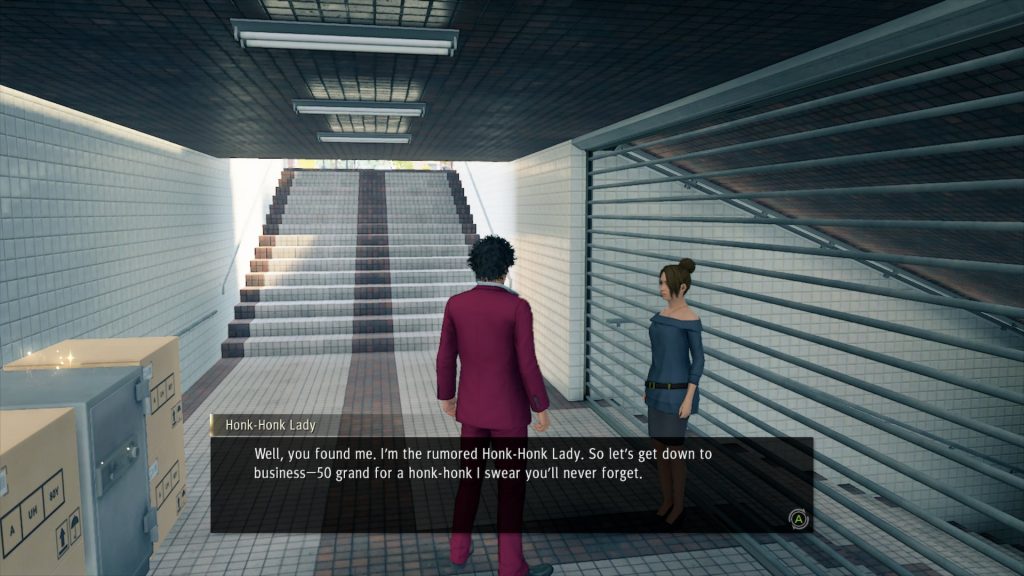
Every party member does have their innate job which is usually their best. Since life is like an RPG, it is always worthwhile to go out and try to learn new skills to improve yourself. The reason why anyone would want to try out as many jobs as possible is to carry over the new skills back to the default job. It is a clever system that emulates life, and is a natural fit for a turn-based RPG.
Characters are the most crucial aspect of Like A Dragon. The entire game is built around them; their desires, aspirations, flaws and conflicts. Whether they are a supporting character or a main party member, everyone is fleshed out enough to feel real. It is easy to get absorbed in these affairs, and experience the drama play out gradually as you explore and interact.
Like A Dragon has a variation of a social link system. Kasuga is able to spend some one on one time with his crew, and learn a bit more about them. This has intrinsic and extrinsic rewards; further realizing each party member with interesting stories, and adding utility in combat with bonus team-attack moves.
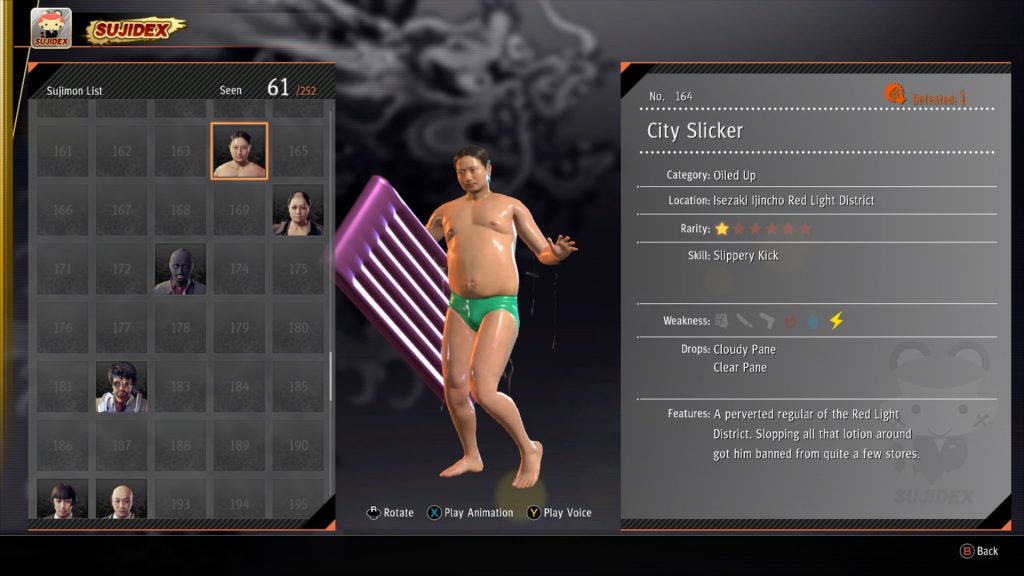
Like any RPG, stats are important. Like A Dragon takes things a bit further by implementing some attributes that have affects out of battle. While exploring, Kasuga may find himself in a situation where he may not be qualified to pursue a quest line if he lacks the traits needed.
Being charming, stylish or even intelligent can have its utility in or out of battle. Some areas might even be locked out to Kasuga if he lacking in one area. Like in real life or an RPG, he has to work at it by getting some life experiences… Or simply pay huge amounts of yen to the Honk Honk Lady to boost your stats.
As with previous Yakuza games, you are set loose in a wide open district to explore. Kasuga and his party can get into turn-based scrapes with thugs and perverts while partaking in side-quests or progressing the story. The core pillars of Yakuza are still present, despite the shift in combat style and after dozens upon dozens of hours. Everything feels very consistent with prior entries.
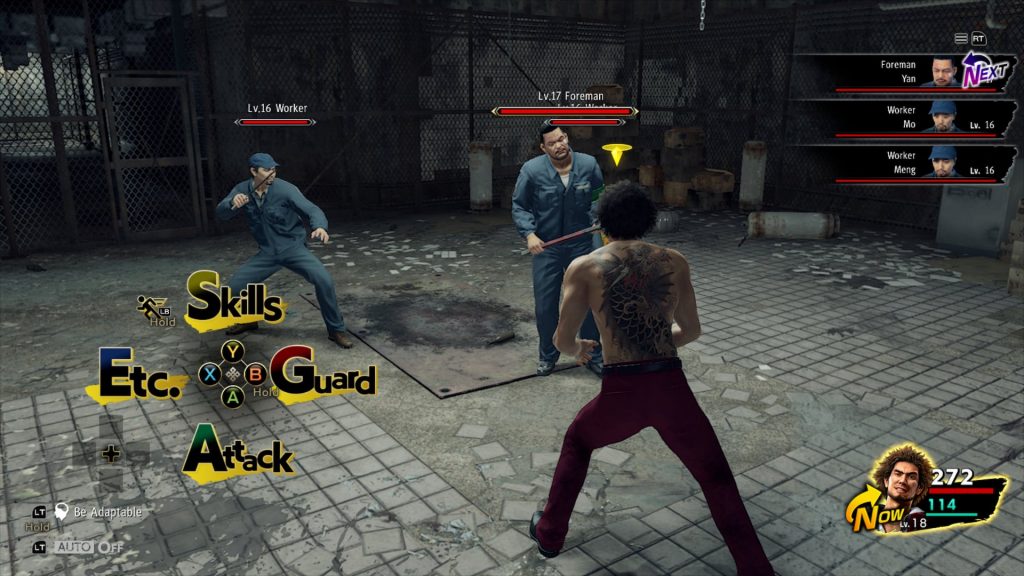
Even thought the combat is turn-based, this is still a Yakuza experience all the way through. The story is filled with unlikely allies, double crosses, and huge plot twists that will shake your heart. There is never a wasted moment, and though things start slowly the pay-off to these early scenes are masterfully executed.
Kasuga is a breath of fresh air for the series and is what was needed after so many games as Kiryu. The Dragon of Dojima’s status has become legendary and lionized. It’s not easy to relate to Kiryu, since he has become such a massive figure. Kasuga on the other hand, is very relatable.
You learn everything there is to know about Ichiban Kasuga during this story. From his tragic upbringing, to his misguided youth, and even up to his middle age where the plot truly begins; you feel every moment. All of this is enhanced by the stellar voice acting and localization.
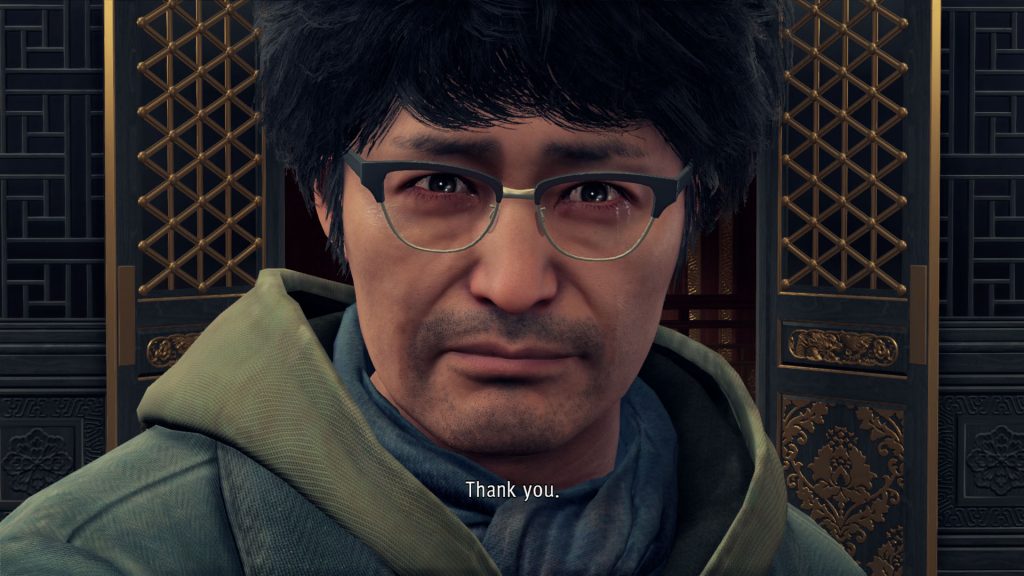
Almost every character is flawlessly cast. Kasuga’s English voice actor is excellent at embodying his naïve brashness and excitable nature. He is a very likeable character, and his voice actor utterly nails his energy.
Another stand-out performance is the voice of Adachi, the former detective turned DMV officer. This tired, middle-aged guy with a penchant for debauchery is easily the best character. The actor sounds age appropriate, and has a wonderful texture to his voice which makes his mischievous chuckle seem authentic. When he’s serious, you believe it, and he actually does sound like a cop.
Out of all of the performers, George Takei as boss Masumi Arakawa stuck out like a sore thumb. Takei seems almost like a joke casting choice, since he has such a distinct cadence that has been used for comedic effect for years. He will never escape the “oh my” meme, and is unconvincing as a very macho and tough mob boss.
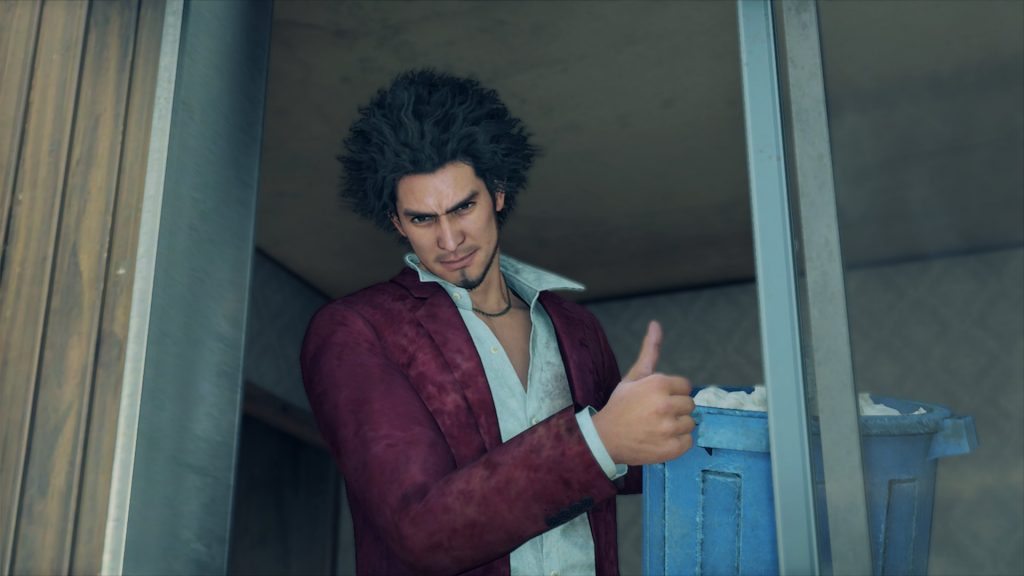
Fortunately, Takei’s role is mostly front loaded early on in the story. His distracting performance is a minor flaw in a grand tapestry of excellence. The only other quirk that might distract some players is that some English voice actors obviously get switched out for voice actors who speak Chinese, mid sentence.
Naturally, none of this is an issue at all if you play Like A Dragon in Japanese. This is the way the game was intended to be played, but it is absolutely worth experiencing the English localization. It is a very faithful translation, and while some liberties are taken, they have hilarious results.
Like previous Yakuza entries, Like A Dragon features a headliner mini-game. This time, it is in the form of a business management sim. Kasuga will be tasked with assigning employees to specific roles, allocating funds, and knowing who to lay-off. This is a surprisingly involving mini-game, and does come with a worthwhile reward for ranking the business in the top 100.
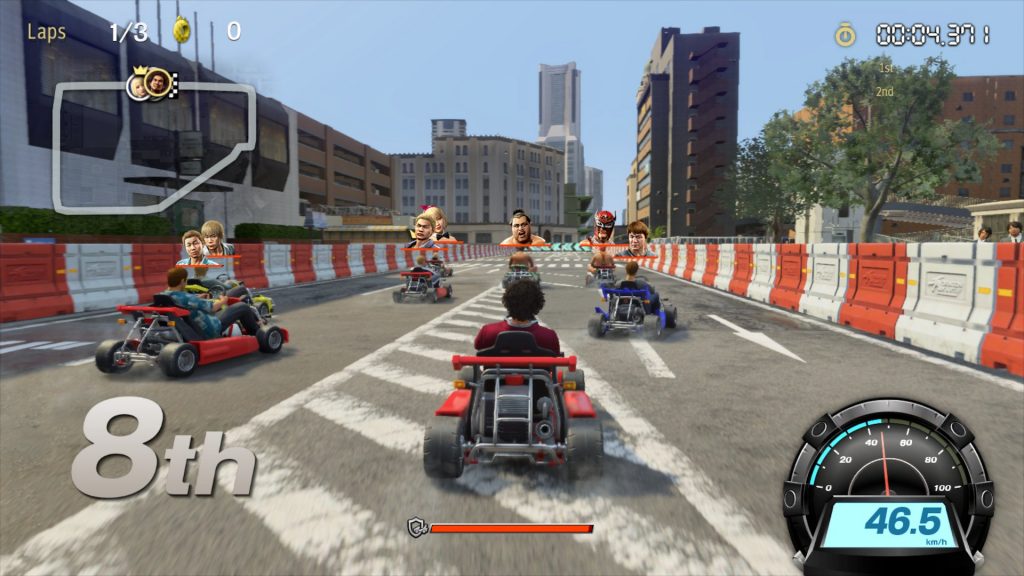
Other new mini-games include a surprisingly fleshed out Mario Kart style racer. Dragon Kart has several tracks and different cup races to participate in. The handling and controls feel very fluent and tight; almost as good as something that could have been released as a full game.
Dragon Kart is also tied to a few side-stories, and provides a hefty money sink for anyone who wants to upgrade the various karts that Kasuga can drive. Impressively, there are options included to race other players online. The quality and quantity of side-content makes Like A Dragon have a value that eclipses everything else that has been done before it.
Like A Dragon is by far the biggest Yakuza game yet. While Kasuga does visit Kamurocho and Sotenbori, a vast majority of the time will be spent in Ijincho. Modeled after Yokohama, this new district is so large that is verges closely on being an open-world city.
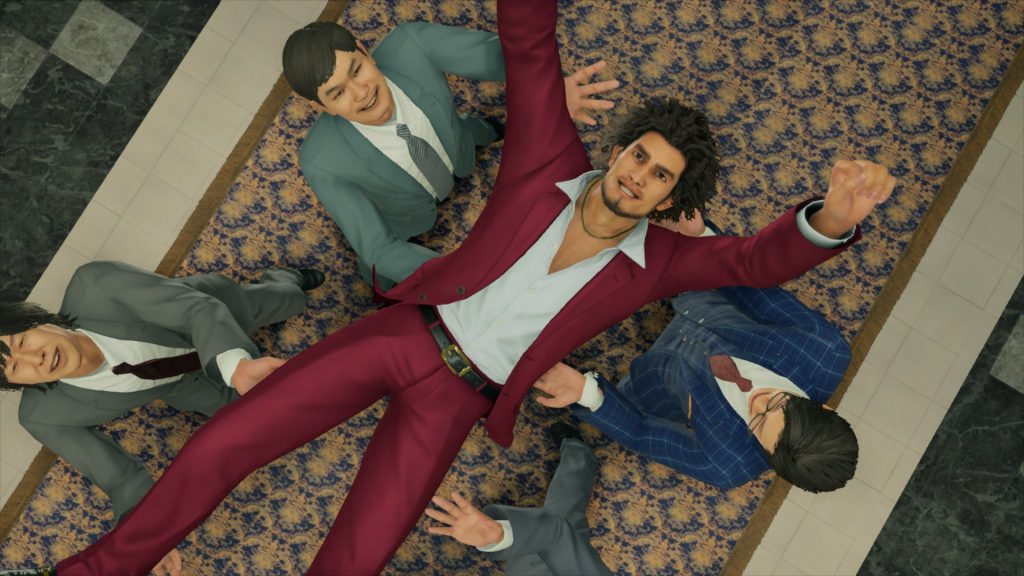
Ijincho’s lay out is more varied than Kamurocho ever was. It is less gridlocked, and packed with hidden nooks and crannies to explore. Due to its immense size, the fast travel taxi system is actually useful for once. Points of interest are no longer a few shops away, some places will demand a lengthy trek across hostile territory.
When the Yakuza series upgraded its game engine last generation, it came at the cost of frame rate. Characters took on a very lifelike presence, hair became more believable, and battle effects became more over the top. Just when the last engine was being perfected with Yakuza 0, the new engine with Yakuza 6 improved some aspects but stepped back in others.
The Dragon Engine is put through its paces by rendering such a vast and dense city. On Xbox Series S, Like A Dragon manages to run a very fluid and consistent 60 frames per second. This looks excellent during special attacks, when the particle effects go wild and every ember wafts gently without stutter.
It may not be a technical marvel like Gears 5, but Like A Dragon does hold its own. It has an unprecedented level of detail and the wide range of activities realize the authenticity of the world. After spending almost 75 hours in Ijincho, it will feel like a home and you’ll never want to leave it.
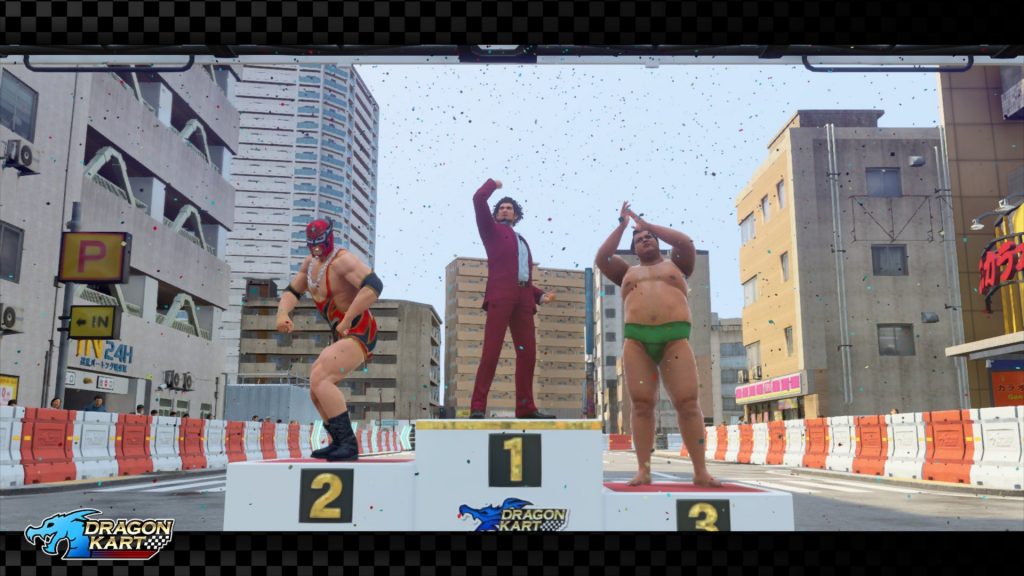
Even though Like A Dragon is packed with features, it would all be meaningless if it weren’t for its characters and drama. You become more attached to the world, because you’ll care about the characters by getting to know them. Most of them are middle-aged, and the weariness in each of them is palpable. Their age adds a realness to them that is sorely lacking in most JRPGs.
Yakuza: Like A Dragon proves you can make a masterpiece by experimenting with the formula. It is more than just being the best Yakuza game yet, but also one of the best RPGs ever made. Ryu Ga Gotoku Studio did their homework, understand what makes a great JRPG, and combined it with their honed craftsmanship of decades of making some of the best crime dramas in video games.
Yakuza: Like A Dragon was reviewed on Xbox Series S using a review code provided by SEGA. You can find additional information about Niche Gamer’s review/ethics policy here.



